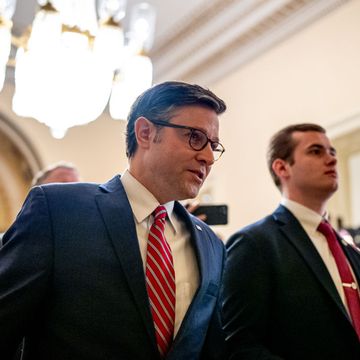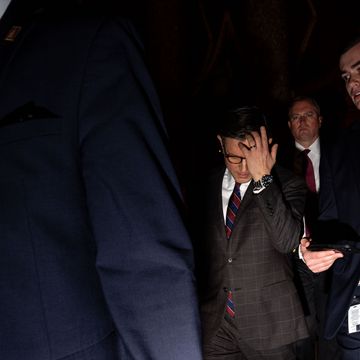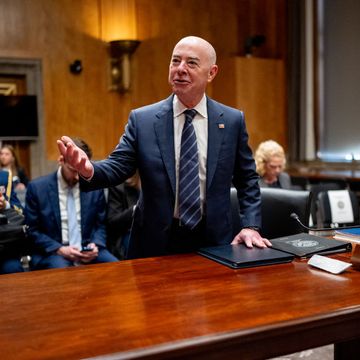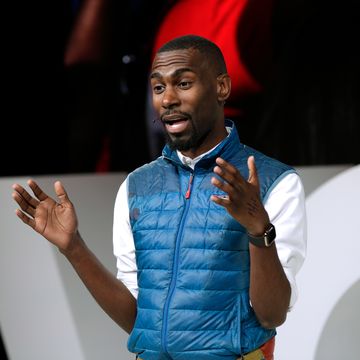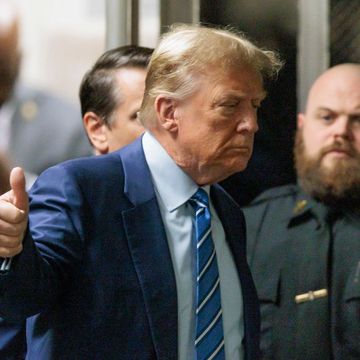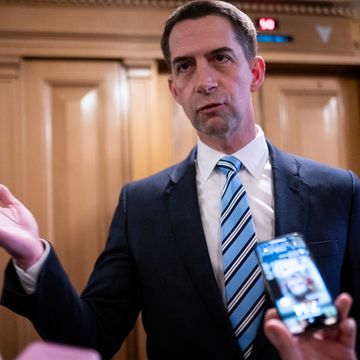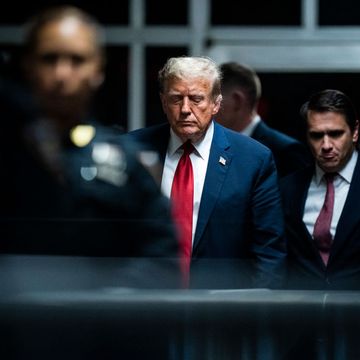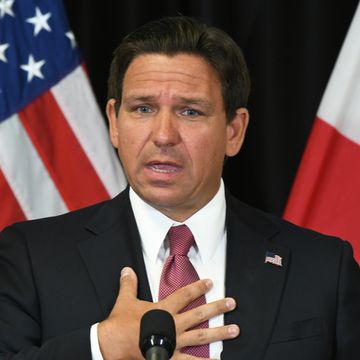WASHINGTON — The problem I've always had with Barack Obama's endless paeans to how everyone in politics should get together and devise bipartisan solutions to our most difficult problems is that it always seemed to me to be so formless, a wish rather than a plan. Martin Luther King talked about dreams and visions, but he wasn't shy about marching children into the fire hoses, either. He knew exactly where the opposition's pressure points were, and exactly how hard to push them to get them to do what he wanted. I was willing to buy the president's approach in the 2008 campaign because I thought the country, having labored under the burdens it had put on itself through the blunder of electing George W. Bush one-and-a-half times, really was looking for someone to absolve its sins for it and make it clean and wash it in the blood of the Lamb. My only real reservation, as I wrote at the time, was that the president was offering absolution without penance — without, say, public criminal trials that would force the country to look at what it allowed to happen to itself. As any good Catholic lad can tell you, that's not the way it works.
As the campaign went on this year, and as the Republican party fought through a primary season that was conducted primarily in the paludal and lizard-drenched terrain of the party's Id, and then presented a national campaign in which the party and its two standard bearers were quite plain in their desire to roll back even the tattered rags of the country's social safety net and to proclaim they were doing it on behalf of "freedom," I wondered if the experience was a clarifying moment for the president. I doubted that anything else had been. He was still chasing chimerical Grand Bargains with the vandals and feral children in the Republican congressional caucus long after it was plain that the effort was ridiculous.
At the very least, the Romney campaign made very obvious, whether it knew the camera was rolling or not, what its vision for the country was. The very nature of the opposition to his re-election forced the president, in one way or the other, to defend every progressive political accomplishment back to the enactment of the child labor laws, and that is not entirely an exaggeration, either. I wondered if, finally, he saw the nature of the opposition for what it truly was — not merely obstructionist toward what he was trying to accomplish, but also desirous of using the president's good intentions to push their own retrograde agenda. Pushing back against that philosophy, day after endless day, I thought, had to work to clarify and to give perceptable form to what he was trying to do with his own presidency. I wondered about that all year.
I do not wonder any more.
I stopped wondering when the president threw out casually a very barbed passage, which seemed to be directed at everyone who hadn't gotten the point in the first week of November. After threatening to render the nation comatose by briefly mentioning The Deficit, the president let fly a steel-tipped reminder of who got elected and who didn't.
We, the people, still believe that every citizen deserves a basic measure of security and dignity. We must make the hard choices to reduce the cost of health care and the size of our deficit. But we reject the belief that America must choose between caring for the generation that built this country and investing in the generation that will build its future. For we remember the lessons of our past, when twilight years were spent in poverty and parents of a child with a disability had nowhere to turn. We do not believe that in this country freedom is reserved for the lucky or happiness for the few. We recognize that no matter how responsibly we live our lives, any one of us at any time may face a job loss or a sudden illness or a home swept away in a terrible storm. The commitments we make to each other through Medicare and Medicaid and Social Security, these things do not sap our initiative. They strengthen us. They do not make us a nation of takers. They free us to take the risks that make this country great.
They do not make us a nation of takers.
Sitting amid the congressional delegations, which is where unusually fortunate failed vice-presidential candidates occasionally can be found on inauguration day, Paul Ryan suddenly found himself having some very bad flashbacks and an authentically terrible afternoon.
The president's second inaugural address was as clear a statement of progressive principles as a president has given since LBJ got up there and shoved the Voting Rights Act and the words "We shall overcome" right up old Richard Russell's ass in 1965. I will grant you that it was draped early on in some completely predictable boilerplate about "outworn programs" and about how we shouldn't think "all society's ills" can be cured through government action. But that was only a little deke to get Brokaw looking the other way. The president then went top-shelf on his audience.
Through blood drawn by lash and blood drawn by sword (Ed. Note: Lincolnosity!), we learned that no union founded on the principles of liberty and equality could survive half-slave and half-free. We made ourselves anew, and vowed to move forward together. Together, we determined that a modern economy requires railroads and highways to speed travel and commerce; schools and colleges to train our workers.Together, we discovered that a free market only thrives when there are rules to ensure competition and fair play. Together, we resolved that a great nation must care for the vulnerable, and protect its people from life's worst hazards and misfortune ... we have always understood that when times change, so must we; that fidelity to our founding principles requires new responses to new challenges; that preserving our individual freedoms ultimately requires collective action.
The speech was a bold refutation of almost everything the Republican party has stood for over the past 40 years. It was a loud — and, for this president, damned near derisive — denouncement of all the mindless, reactionary bunkum that the Republicans have come to stand for in 2013; you could hear the sound of the punch he landed on the subject of global warming halfway to Annapolis. But the meat of the speech was a brave assertion of the power of government, not as an alien entity, but as an instrument of the collective will and desires of a self-governing people.
Our journey is not complete until our gay brothers and sisters are treated like anyone else under the law, for if we are truly created equal, then surely the love we commit to one another must be equal, as well.Our journey is not complete until no citizen is forced to wait for hours to exercise the right to vote. Our journey is not complete until we find a better way to welcome the striving, hopeful immigrants who still see America as a land of opportunity, until bright young students and engineers are enlisted in our workforce rather than expelled from our country. Our journey is not complete until all our children, from the streets of Detroit to the hills of Appalachia to the quiet lanes of Newtown, know that they are cared for and cherished and always safe from harm. That is our generation's task, to make these works, these rights, these values of life and liberty and the pursuit of happiness real for every American.
We are not free because we are individuals, the president told them, daring them to hold two ideas in their heads at a time without their brains leaking out of their ears. We are free because, as individuals we work together in the creative act of self-government to produce a viable political commonwealth in which that freedom can thrive and prosper, and the primary instrument of that commonwealth is the government we devise out of it. That government must be allowed to function. That government must be allowed to operate for this freedom to be generally achieved.
Progress does not compel us to settle century's long debates about the role of government for all time, but it does require us to act in our time. For now, decisions are upon us and we cannot afford delay. We cannot mistake absolutism for principle or substitute spectacle for politics, or treat name-calling as reasoned debate.
We will wait and see, of course, what happens once the scaffolding and the bunting come down, bearing in mind always the scriptural caution about faith without works being dead. But, for an afternoon, anyway, a Democratic president reclaimed the language of freedom from those for whom it means merely lower taxes and more guns. He reclaimed government as a manifestation of a country's aspirations, and not as an anchor on its progress. And he refuted, with precision and neatly camouflaged contempt, many of the most destructive ideas that have poisoned out politics for nearly four decades now. He did nothing less than redefine patriotism in a progressive way. That is already bothering all of the right people. This, I tell you, is what gives me hope.

Charles P Pierce is the author of four books, most recently Idiot America, and has been a working journalist since 1976. He lives near Boston and has three children.

